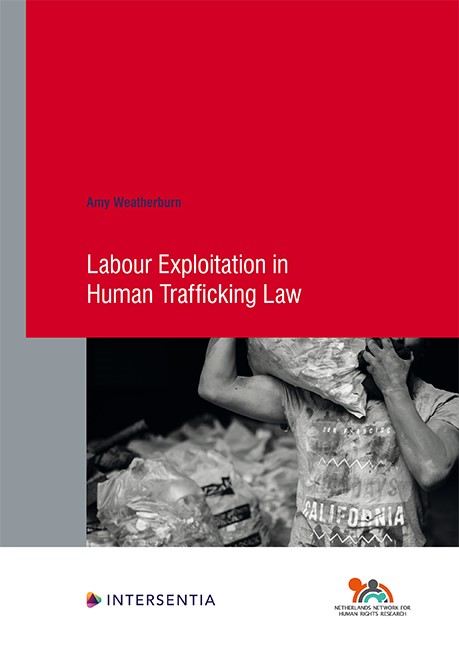Book contents
- Frontmatter
- Foreword
- Contents
- List of Abbreviations
- List of Tables
- Introduction
- PART I Exploitation in Political Theory
- PART II Labour Exploitation in Law
- PART III Labour Exploitation In The Criminal Law Of Belgium And England And Wales
- PART IV Conceptualising Labour Exploitation In Human Trafficking Law
- Conclusion
- Annex 1 List of Cases Accessed in Belgium and England and Wales
- Annex 2 Nationality of Victims and Civil Parties
- Bibliography
- Human Rights Research Series
Chapter 10 - The Conceptualisation of Labour Exploitation in Human Trafficking Law: a Proposal
Published online by Cambridge University Press: 10 December 2021
- Frontmatter
- Foreword
- Contents
- List of Abbreviations
- List of Tables
- Introduction
- PART I Exploitation in Political Theory
- PART II Labour Exploitation in Law
- PART III Labour Exploitation In The Criminal Law Of Belgium And England And Wales
- PART IV Conceptualising Labour Exploitation In Human Trafficking Law
- Conclusion
- Annex 1 List of Cases Accessed in Belgium and England and Wales
- Annex 2 Nationality of Victims and Civil Parties
- Bibliography
- Human Rights Research Series
Summary
The legal conceptualisation of labour exploitation proposed in this chapter constitutes a definitive articulation of the building blocks of exploitation flowing from the foregoing theoretical and legal analysis, and in particular, the domestic case law analysis. Whilst we go one step further than Jovanovic – who identified three necessary and sufficient conditions of exploitation but stopped short of providing a conceptualisation – we do adhere to the same note of caution: rather than seeking to amount a definitive and uniform approach, the proposed conceptualisation ‘serves as a frame of reference to be further specified on a national level.’ Similarly, in light of the richness of the empirical findings, we have adopted a different approach to Allain who argues that exploitation ‘should not be understood by undertaking an inductive search of the commonalities among the various instances deemed exploitative in the Palermo Protocol.’ Instead, when seeking to conceptualise labour exploitation, the common features have been drawn out with a view to eliminating the ambiguous nature of the phenomenon.
THE LEGAL CONCEPTUALISATION OF LABOUR EXPLOITATION
The robustness of the proposed conceptualisation is rooted in its emergence from the cross-disciplinary doctrinal legal and theoretical analysis and comparative empirical legal analysis. In particular, despite the misgivings and legal lacunas identified by academic scholarship, the findings reveal coherence in that the same concepts keep resurfacing, including, inter alia, taking unfair advantage or abuse of a position of vulnerability, the exercise of control and the irrelevance of consent suggesting a somewhat partial convergence among the elements of exploitation. Consequently, these and other conditions are incorporated into the proposed legal conceptualisation. It is important to emphasise that the conditions of exploitation, individually, do not amount to labour exploitation, it is their cumulative existence that leads to a situation being identified as one of labour exploitation.
We propose that labour exploitation should be legally conceptualised as:
The provision of work or services wherein A knowingly takes unfair advantage of B's position of vulnerability by means of the exercise of control in order to gain a benefit and shows a lack of respect for B's human dignity.
- Type
- Chapter
- Information
- Labour Exploitation in Human Trafficking Law , pp. 241 - 260Publisher: IntersentiaPrint publication year: 2021



